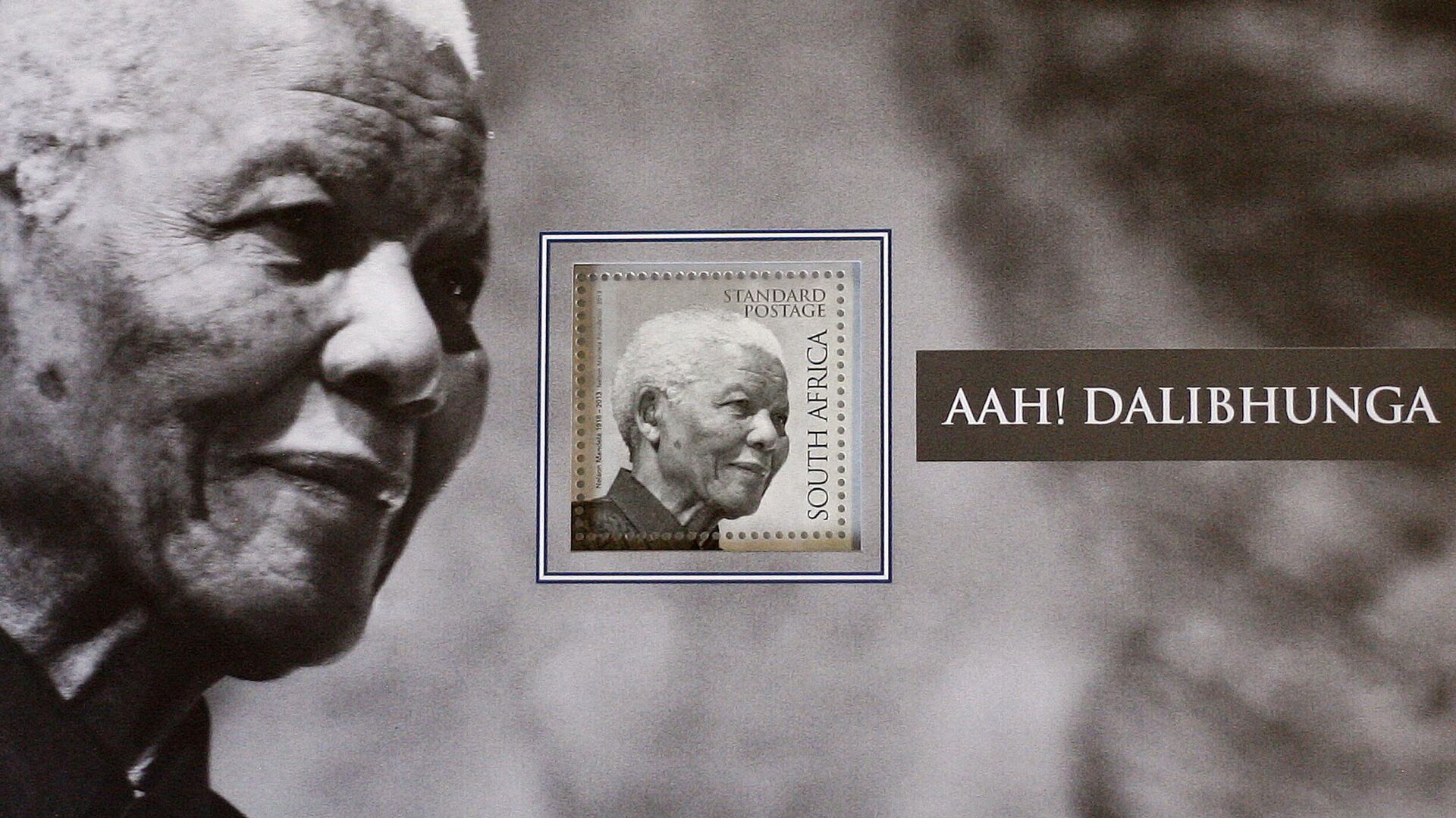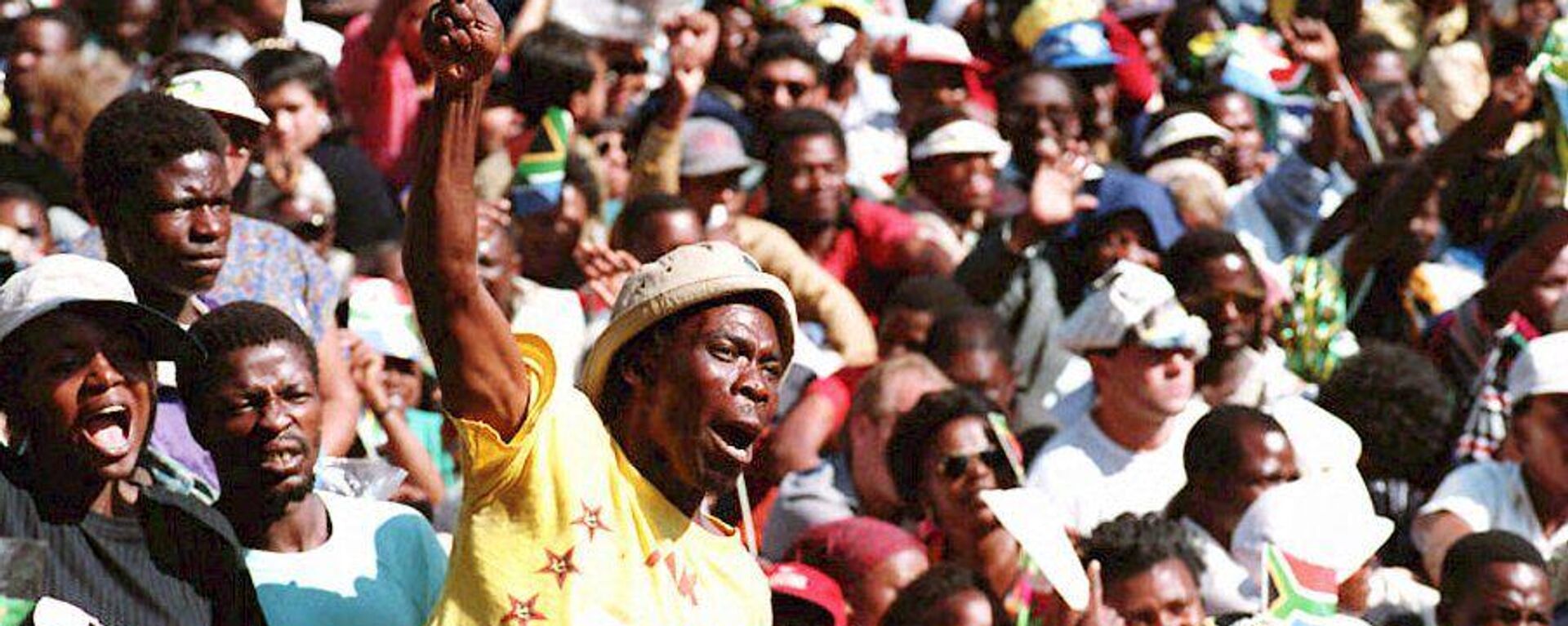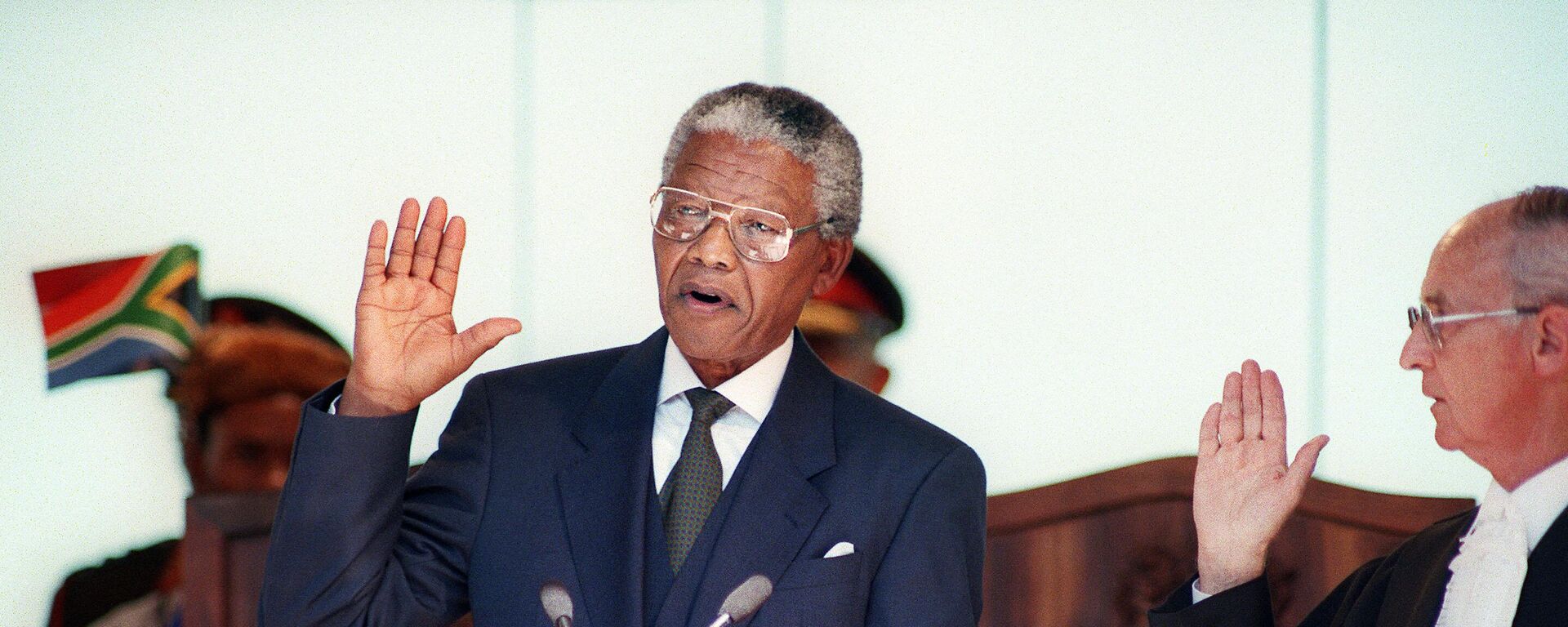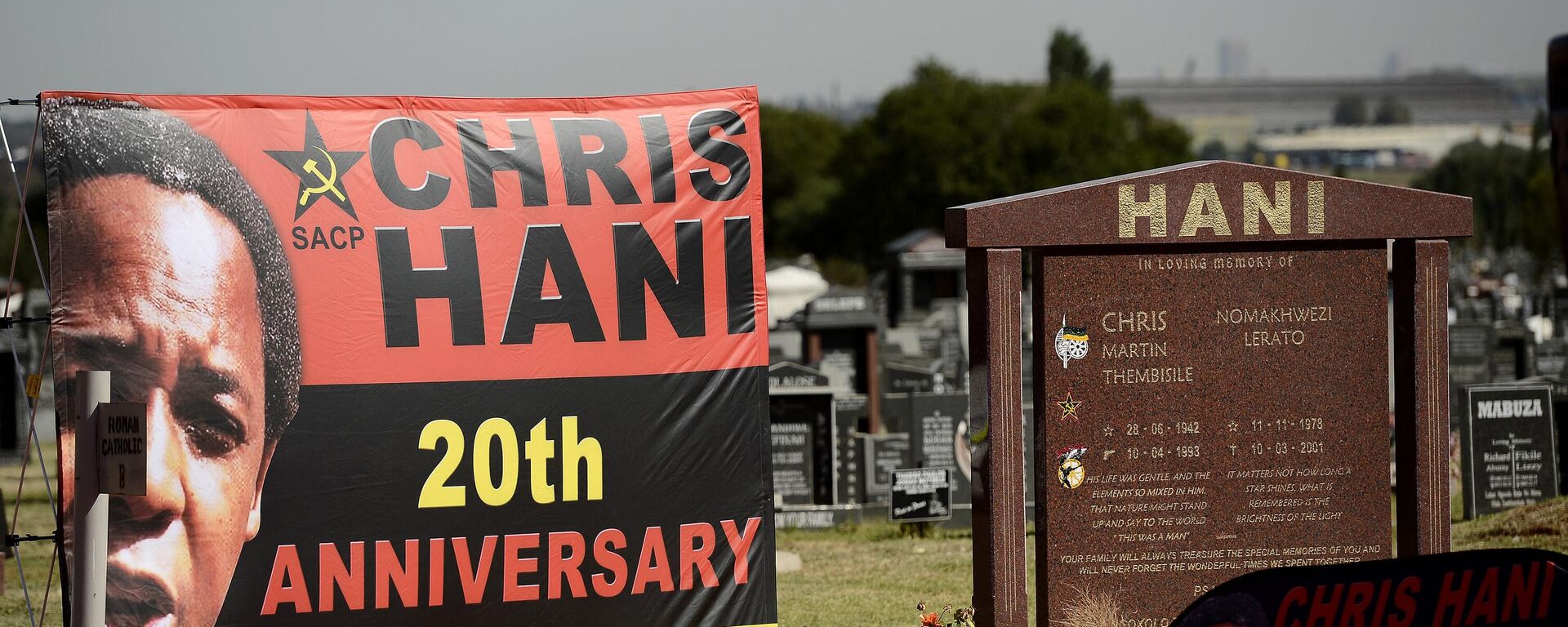'Never Saw It Coming': South African Thembu Tribe Prince on Mandela's Inauguration Anniversary

© AP Photo
Subscribe
May 10 marked the 29th anniversary of Nelson Mandela's 1994 inauguration as South Africa's first black head of state and first democratically-elected president in a fully representative election that included the country's black population.
Nelson Mandela's inauguration as president of the Republic of South Africa marked the end of the apartheid government and the beginning of a new era for the country as a multiracial democracy.
Mandela had spent 27 years in prison for his opposition to the apartheid regime. During his time in prison, he became a symbol of the struggle against apartheid, and his release in 1990 was celebrated around the world. Mandela then worked tirelessly to negotiate a peaceful transition from apartheid to democracy.
On May 10, 1994, millions of South Africans of all races gathered to witness the historic inauguration ceremony of Nelson Mandela as president. Mandela's address to the nation was a powerful call for unity and reconciliation, urging all South Africans to work towards a new era of peace and prosperity.
Mandela's legacy continues to inspire South Africans as well as people around the world. His commitment to justice, equality and reconciliation serves as a roadmap for ending oppression and working towards a better future for all.
On the 29th anniversary of Mandela's inauguration, Sputnik spoke to Siphiwe Dlomo, a South African businessman and a prince of the abaThembu tribe, about his personal experience and thoughts on the historic event.
President Mandela is often referred to by his clan name Madiba, which was originally the name of a Thembu chief who ruled the Transkei in the 18th century. When asked about what it means to be part of the Madiba clan, Prince Dlomo, who is related to Mandela through the Madiba clan, said that there is a lot of pressure that comes with it.
"You are seen as a savior or just seen as this superhuman person," he said, adding that despite the pressure, Dlomo noted that Mandela tried to be a leader that everyone expected of him and that he learned from his mistakes.
Dlomo was present at the Union Building and described the day as a "very memorable day for us, as South Africans, Black South Africans, to be specific." He also described the might of the event and the affirmation it brought to those who were involved in the struggle for liberation in South Africa.
"We celebrated. And I must say, we were pinching ourselves because we never saw that day coming at any given point in our lifetime," the prince said. "Understanding the atrocities that happened during the apartheid era, the segregation that happened and the enforcement of apartheid laws towards a certain part of the community, and, you know, the scars, people have been traumatized over the years and that day for a lot of South Africans was a day that they never thought would come."
Dlomo explained that Mandela's inauguration as president was also a moment of celebration and relief for citizens around the world because of his status as an icon. From the time of his arrest during the Rivonia Trials to his inauguration, Mandela had been a symbol of hope and freedom for many, regardless of whether they had ever met him personally.
The tribal leader emphasized that Black South Africans always wanted unity and equality, rather than superiority over other races, and that the day of Mandela's inauguration signified a newfound sense of freedom and humanity for many.
"It symbolized freedom, it symbolized resilience, it symbolized tenacity, it symbolized patience, and it symbolizes the humility that South Africans had," he said.
Speaking of his relationship with Mandela, Dlomo said the former president was considered like a grandfather to him, and he was always available to the people, "although sometimes it became a bit difficult to have access" to him because of his status as the nation's leader.
"With the Madiba–abaThembu clan there's a huge, huge…it's chains and chains. In fact, his father and my great grandfather were very close cousins, and that's how we became very close to him [Mandela]. In Africa and African tradition, any one family that has a surname that you grew up under, they are your grandfather or your mother or your grandmother for that matter. It wasn't direct, but yes, he’s part of the family through my great grandfather." the prince noted.
Dlomo also commented on how South Africa has changed since the apartheid era. He highlighted that are increased opportunities for Black middle-class citizens and more Black children being admitted into traditionally white schools. However, he also emphasized that there is still a feeling that Black South Africans are not involved in the country's economy.
"But again, I need to emphasize that as much as has changed, there's that feeling in the country that we are not in control of the economy. And I think that's where the prize is now, that we need to control the resources, we need to control key sectors of the economy, not just controlling by the mere black face control, but to be inclusive, to be part of the decision-making, to be part of the economic growth of the country, to be part of the socio-economic correction of this country," Dlomo stated.
The businessman stressed that economic emancipation is now the priority, and many South Africans are still struggling with this.
Until the country achieves economic liberation, South Africans will feel that they are not fully liberated and in control of their country, Dlomo believes.




